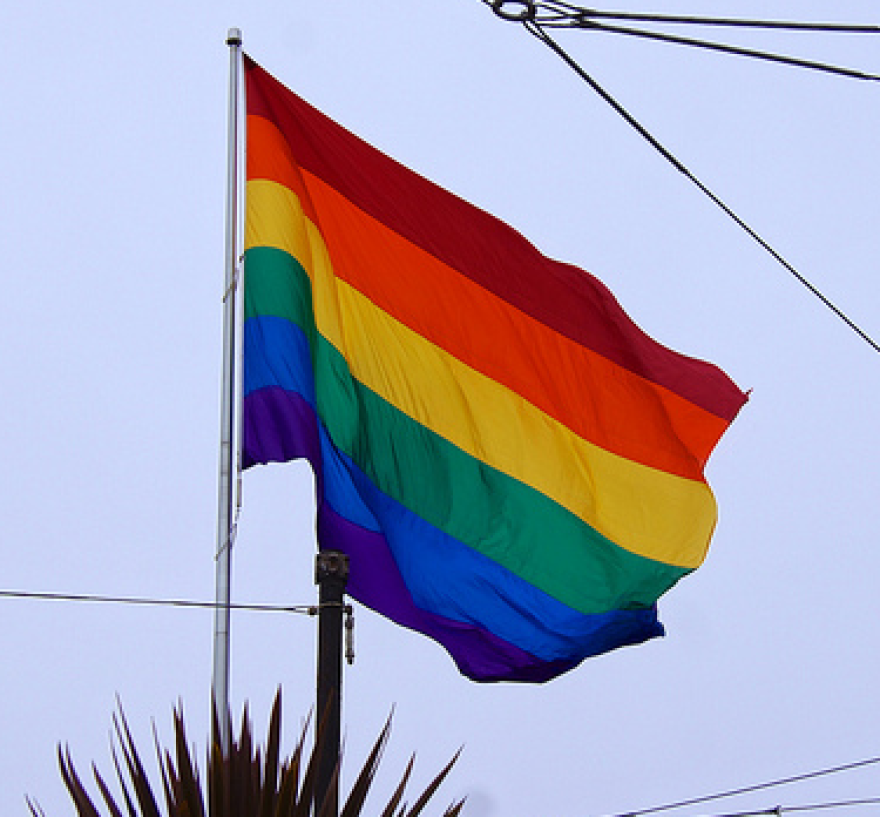TALLAHASSEE — The Florida Department of Children and Families is under fire for backing off of part a proposal that would protect LGBT kids who live in group homes from discrimination — including so-called "conversion therapy" aimed at changing their sexual orientation.
The language is part of a wide-ranging draft rule that deals with group care for foster youths and has been in the works for months.
Last fall, when DCF Secretary Mike Carroll approved provisions protecting lesbian, gay, bisexual and transgender youth, advocates celebrated. At that point, the draft rule banned staffers at group homes from "(a)ttempt(ing) to change or discourage a child's sexual orientation, gender identity or gender expression."
However, that language was opposed by the Florida Baptist Children's Home and the Florida Conference of Catholic Bishops, and by late January, it was gone.
At a Friday hearing on the proposed rule, dozens of speakers — foster youths, advocates and child-welfare professionals — asked DCF to reinstate it.
"Deletion of this language is worse than never having addressed it," said Hannah Willard, the Orlando-based outreach coordinator for the advocacy group Equality Florida. "Arguably, removing this prohibition implies the department endorses the use of conversion therapy. And the fact that the department removed this language at the request of faith-based providers is particularly disturbing, given that many children are subjected to these practices by unlicensed pastors in churches or other faith-based institutions."
Carroll, who did not attend the hearing, said in a statement that DCF does not and will not tolerate any discrimination or bullying against any vulnerable child for any reason.
He also deplored the politicization of child welfare, which he said requires "everyone under the tent" to contribute, and noted that many faith-based groups are among the best providers of foster and group care in the state system.
"I don't want to get bogged down for the next two years arguing over words on a political document when really, I need to be talking about practice, I need to be talking about training, I need to be talking about developing adequate resources to serve these kids so that they're better served from the outset in places where they'll flourish," Carroll told The News Service of Florida.
The Florida Baptist Children's Homes and the Florida Conference of Catholic Bishops submitted their written comments in January, but did not participate in Friday's hearing.
"Zero tolerance is expected by staff regarding any type of discriminatory, harassment, or bullying behaviors regarding residents or other employees," the Florida Baptist Children's Homes wrote in January. "Faith based milieus allow for spiritual guidance that respect(s) the differences among God's creations and can do so in a safe, non-judgmental manner. Therefore, a special designation for sexual orientation, gender identity or gender expression is unwarranted."
"The definition of 'sexual orientation' could encompass sexual conduct outside of marriage, thus legally affirming and specially protecting that conduct," cautioned Michael Sheedy of the Florida Conference of Catholic Bishops. "Clearly, every child should be safe from bullying and harassment in the care of state of Florida. An expectation of abstinence for school-aged children from sexual activity should be established."
But Willard and others warned Friday that although discrimination and bullying for reasons such as race are banned, they occur nonetheless. For example, they said, in some group homes the straight boys are allowed to date, but not the gay ones.
Advocates also noted that LGBT youths were afraid to submit comments for the rule hearing.
"The children are so scared of retaliation, losing placement and feeling even less accepted," wrote Amanda Williams and Deena Ruth, a lesbian couple in Gainesville who specialize in fostering LGBT kids. "Of the 10 children whose stories I asked to share or asked to write a letter, they ALL declined out of fear and even asked that I not give their specific examples. If the element of fear that LGBTQ youth face isn't enough of a statistic, I don't know what is," said the comment, using an acronym that also includes children "questioning" their sexual identity.
Carroll said he would take another look at the language addressing conversion therapy. And he said DCF needs to do "a better job of identifying these children" and matching them with parents and providers who will accept them as they are.
But Mandi Hawke of SunServe, a Broward-based agency that provides services for LGBT youth, said the department has a long way to go.
"We have sat open for months at a time without placement, because people are afraid to discuss LGBT status with young people," Hawke said. "With the number of LGBT youth we know that are in care, this is horrific that we are told repeatedly how many foster youth need homes, and yet the proper matches are not being made."
Advocates suggested that Gov. Rick Scott had overruled Carroll on the draft language. Asked to respond, Scott spokesman John Tupps said: "The governor's office collaborates with all state agencies and we are fully aware of rulemaking going on at DCF. We encourage all parties to provide their input during this process."
The Department of Children and Families will accept public comment on the draft rule until April 15.

